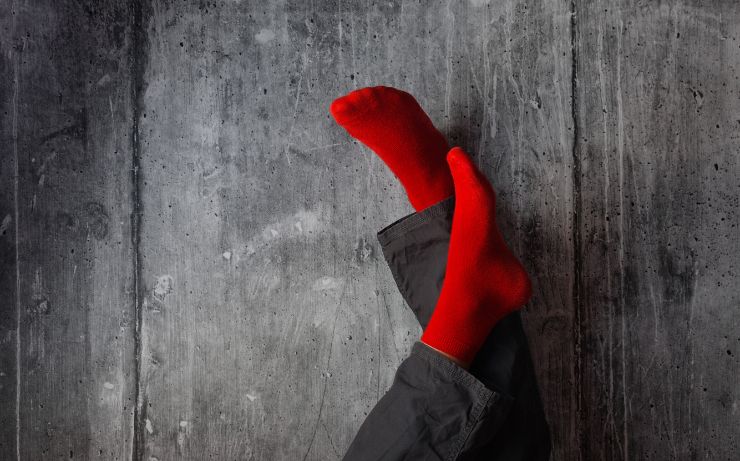In this post, we explore a provocative idea: Can resting be an act of rebellion? Join us as we reconsider our cultural narratives around productivity, success, and rest, and discover how reclaiming rest might be one of the most courageous actions we take.

OCTOBER 3, 2025
At the beginning of last week, I found myself on the brink of burnout.
Weeks filled with travel, a summit, client sessions, meetings, and program planning had left me physically drained and mentally stretched thin.
As I returned home and settled in at my desk, contemplating the list of catch-up tasks ahead, a quiet inner voice surfaced with surprising clarity.
The voice didn't ask me to push forward or summon more energy. Instead, it presented a single, startlingly simple question:
"What if you chose rest right now?"
I hesitated. My first reaction was resistance. Resting in the middle of a busy workday felt irresponsible, perhaps even radical.
Everything within me echoed the deeply ingrained belief that productivity equates to worthiness and in the end, revenue.
But in that moment of confusion, I paused, allowing the discomfort of restlessness to move through me.
Choosing rest felt counterintuitive, even rebellious.
By stepping away, I was consciously rejecting the relentless narrative that equates value with productivity.
This simple act became powerful precisely because it challenged deeply held cultural norms.
It redefines success, rewarding those who can sacrifice most, tolerate the most exhaustion, or push themselves the furthest without breaking.
Resting, I realized, requires courage.
It demands the strength to question prevailing beliefs about ambition, success, and self-worth.
Rest is not just recovery in a physical sense. It is a profound reclamation of our own rhythms and truths. It invites us to embody authenticity in the deepest sense, aligning our actions with our innate wisdom rather than societal pressures.
As I allowed myself to step away from the relentless momentum, something important became clear: genuine rest is far more active and intentional than I had previously recognized.
It involves deliberately shifting focus inward, acknowledging the body's signals, and respecting the subtle yet unmistakable messages our systems provide.
This realization sparked a deeper reflection. How often had I ignored the quiet signals my body offered?
The slight tightness in my chest, the subtle ache behind my eyes, the persistent sense of tension that I had learned to dismiss as normal.
In prioritizing productivity, had I unknowingly severed myself from the very intelligence that supports sustainable impact and creativity?
The more deeply I reflected, the clearer it became that the cultural expectation of constant activity does not merely deplete us individually; it fragments our collective capacity for genuine connection and profound impact.
We celebrate those who push through exhaustion, often at great cost, rather than honoring the wisdom inherent in pausing, reflecting, and restoring.
When I returned to my tasks later that day, wisdom and inspiration flowed naturally, without much effort or strain.
The impact of my work deepened, reflecting a presence that was fully integrated rather than fragmented by exhaustion.
This was a reassuring confirmation: rest amplifies our capacity for meaningful contribution through intentional design.
Resting intentionally invites us into alignment with deeper truths about wellbeing, leadership, and creativity.
It empowers us to lead from an integrated place, where decisions are rooted in presence rather than fatigue.
It creates space to notice subtler dimensions of experience like intuition, emotional intelligence, and genuine empathy, qualities that drive transformative change and lasting influence.
Perhaps resting is the ultimate act of rebellion.
In choosing rest, we disrupt not just our personal patterns but collective ones, shaping a culture that honors genuine wellbeing over relentless striving.
The act of resting, consciously and courageously, reconnects us with our deepest humanity and amplifies our true capacity for meaningful contribution.
As you consider your own relationship with rest, I invite you to reflect: What might shift in your own life if you embraced rest not as an indulgence but as a courageous act of self-honoring and rebellion?
What deeper clarity or creativity might emerge from the simple, profound act of genuinely honoring your body's wisdom?
I wonder if perhaps, we could redefine rest not as a pause in productivity but as the foundation from which our most meaningful impact arises.

By Petra Brunnbauer
Petra Brunnbauer is an award-winning Mind-Body Coach, founder of The Jōrni®, host of the globally-ranked Jōrni Podcast, and author of The Functional Freeze Formula™. With a Master’s in Psychology and as a doctoral student in Mind-Body Medicine, Petra is committed to advancing holistic approaches to health and healing.

